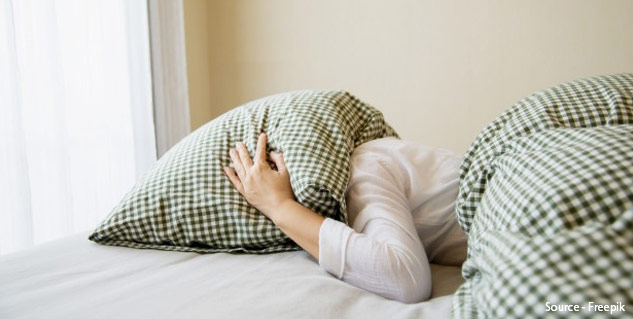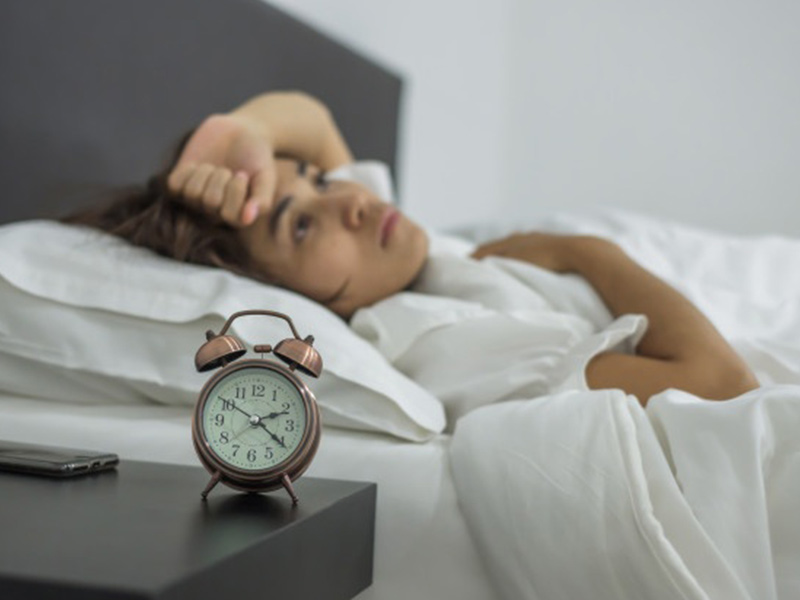
After a long, exhausting day, all you want to do is crawl into bed and drift into a deep sleep. But sometimes, no matter how tired you are, sleep just won’t come. If you find yourself tossing and turning despite feeling physically drained, you’re not alone. Sleep struggles can be caused by a variety of factors, including stress, screen time, and even your diet.
Table of Content:-
In an exclusive interaction with the editorial team of Onlymyhealth, Dr Nikhil Nayar, Psychiatrist, Sharda Hospital - Noida, shared some science-backed strategies to help you fall asleep faster and enjoy a restful night. Here is what he shared with us.
1. Create a Relaxing Bedtime Routine
Your body thrives on routine. Going to bed at the same time each night and establishing a calming pre-sleep ritual can signal your body that it’s time to wind down. Try activities like reading a book, taking a warm bath, or practising meditation. Avoid stimulating activities such as intense exercise or scrolling through social media right before bed.
2. Limit Screen Time Before Bed
Electronic devices emit blue light, which suppresses melatonin, the hormone responsible for sleep. To avoid this, try to power down your screens at least an hour before bedtime. If you must use your phone or laptop, consider enabling night mode or using blue-light-blocking glasses.

Also Read: Taking Medications For Insomnia? Expert Answers If They Are Safe
3. Watch Your Caffeine and Sugar Intake
Even if you had your last cup of coffee in the afternoon, caffeine can linger in your system for hours, making it difficult to fall asleep. Likewise, consuming too much sugar before bed can lead to energy spikes and crashes, disrupting your rest. Opt for a light, healthy snack instead, such as a banana or a handful of nuts.
4. Make Your Bedroom a Sleep-Friendly Space
Your bedroom environment plays a crucial role in your ability to sleep. Ensure your room is cool, dark, and quiet. Invest in blackout curtains, use a white noise machine, or try aromatherapy with calming scents like lavender. A comfortable mattress and pillows also make a big difference in promoting quality sleep.

5. Get Some Sunlight During the Day
Exposure to natural light during the day helps regulate your body’s internal clock (circadian rhythm), making it easier to fall asleep at night. Aim to spend time outside in the morning or early afternoon, or keep your workspace near a bright window.
Also Read: Insomnia Before Your Period: What's Behind It?
6. Avoid Long Naps
While short power naps (20-30 minutes) can boost energy, long or late-afternoon naps can interfere with your nighttime sleep. If you find it hard to fall asleep at night, try skipping naps or keeping them brief.
7. Try Herbal Remedies or Supplements
Natural sleep aids such as chamomile tea, valerian root, and magnesium can help promote relaxation. However, it’s always best to consult a healthcare professional before trying any new supplement.
Bottomline
Good sleep is essential for overall health and well-being. If you’re struggling to fall asleep even after an exhausting day, small lifestyle adjustments can make a big difference. By creating a sleep-friendly routine and addressing potential disruptors, you can finally enjoy the deep, restorative sleep your body
[Disclaimer: If sleep problems persist despite trying these tips, you might be dealing with an underlying issue like insomnia, anxiety, or a sleep disorder. Consulting a doctor or sleep specialist can help you identify the root cause and find an appropriate solution.]
Also watch this video
How we keep this article up to date:
We work with experts and keep a close eye on the latest in health and wellness. Whenever there is a new research or helpful information, we update our articles with accurate and useful advice.
Current Version